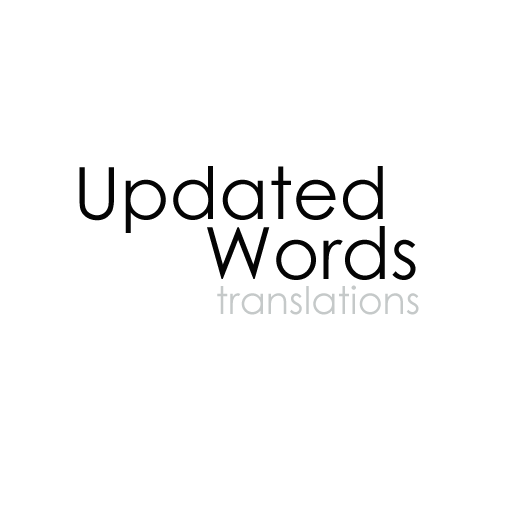As translators, we make meaningful word choices every day. In every subject field, interpretation is key and we make personal choices in every sentence. A single word can change the tone of a text, the expert-level of a technical text or the accuracy of a document but in literary translation, word-meaning is maximised and the translator owes the original author the duty of honouring his/her intentions. As both a writer and translator, I’m deeply appreciative of the difficult choices literary translators make whenever they take on the translation of fiction. However, I can’t help but question some of the choices literary translators make.
The Importance of Translating a Title
Having worked in the Publishing industry, I know authors don’t necessarily have the last word on book titles. Publishing houses have whole editing and marketing teams joining forces to make sure a book is successful and that means, often, covers, titles and chapter sizes get taken out of an author’s hands. Likewise, translators don’t hold full responsibility for translating a title. There is room to play when marketing and localisation are important.
Recently, I witnessed the release of last year’s biggest seller “Eleanor Oliphant Is Completely Fine” in Portugal. I did so with much excitement. I read Gail Honeyman’s debut novel a little before it became an overnight success. “Eleanor Oliphant Is Completely Fine” is the story of Eleanor, an awkward Scotswoman with a lonely life and a problematic past she tries to forget through living a carefully scheduled and predictable life. An unexpected moment of kindness leads Eleanor to make friends with one of her colleagues and find out maybe she doesn’t have to live the rest of her life all alone. I could write about Gail’s masterful narration and how she built Eleanor so perfectly imperfect that you can’t help but root for her. My feelings and perceptions about this story are deep and emotional and I’m watching with great expectation how this story is received in the Portuguese market. However, my heart broke a little when I saw the translation of the book title: “A Educação de Eleanor” (meaning literally “The Education of Eleanor”).
The Importance of Looking into the Whole Story When Translating a Book
Shakespeare wrote “A rose by any other name would smell as sweet” but I wouldn’t say this applies to book titles. Titles are extremely important when readers are picking what to read. A title, along with the cover, needs to convey the theme and feel of the story. This is even more relevant when it comes to debut novels, where writers don’t have a previous body of work to prop them up.
“Eleanor Oliphant Is Completely Fine” is a snarky, sarcastic title. Something Eleanor herself would say. She’s not fine. She’s not fine at all. Like so many of us, Eleanor pretends to be fine, even to herself but deep inside she’s lonely and hurting. The title conveys this aspect of the story perfectly.
“The Education of Eleanor Oliphant”, however, suggests the book is written from the perspective of the person responsible for Eleanor’s education. It implies a focus on how Eleanor was/is being brought up or how she became the person she did, to say the least. If we couple the expression “The Education of” with the name “Eleanor” (an old British name now associated with the upper-classes), it gives the impression “Eleanor Is Completely Fine” is the story of how an uppity teenager was served some humble pie when her father lost all his investments.
A title like this one can cast the wrong light over the whole story and twist it into something different if there is enough room left for interpretation.
If we take a closer look to the nearest language markets, the Spanish have “Eleanor Oliphant Está Perfectamente”, the French, “Eleanor Oliphant Vá Très Bien” and in Italian, “Eleanor Oliphant Sta Benissimo”. All these keep the theme of stating how Eleanor Oliphant is in sarcastic terms, hence staying faithful to the original piece of work. The decision to translate “Eleanor Oliphant is Completely Fine” as “The Education of Eleanor” (“A Educação de Eleanor”) is questionable, to say the least, and doing a disservice to the book. “Eleanor Oliphant Está Super Bem” (“Eleanor Oliphant is Super Good”) or “Eleanor Oliphant Está Claramente Óptima” would have been more appropriate options for the title which would leave less room for disambiguation.
When Choices Are Taken from Translators’ Hands
There are many instances in which a translator’s best knowledge and advice in translation but may be ignored. In instances like publishing, market analysis is important and often titles are tested in focus groups. It could always be the case that “A Educação de Eleanor” tested higher and more people were drawn to the potential for a story about educating a child rather than a more sarcastic title. The Portuguese market is somewhat conservative and small enough to put off publishers from taking risks. However, there are some occasions when translators’ choice or editors’ choices can be completely NOT fine.

